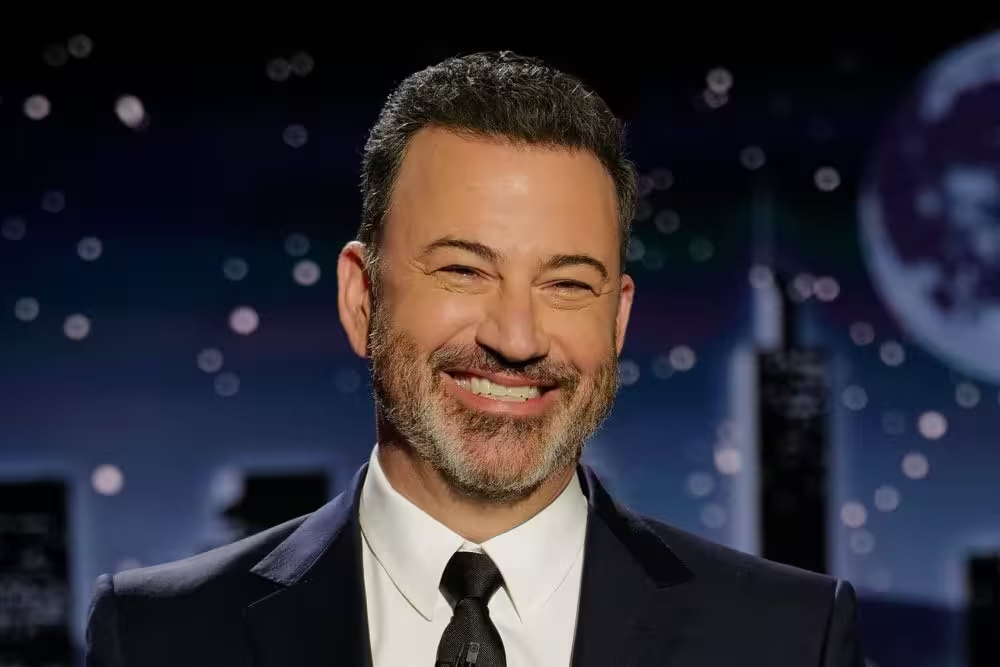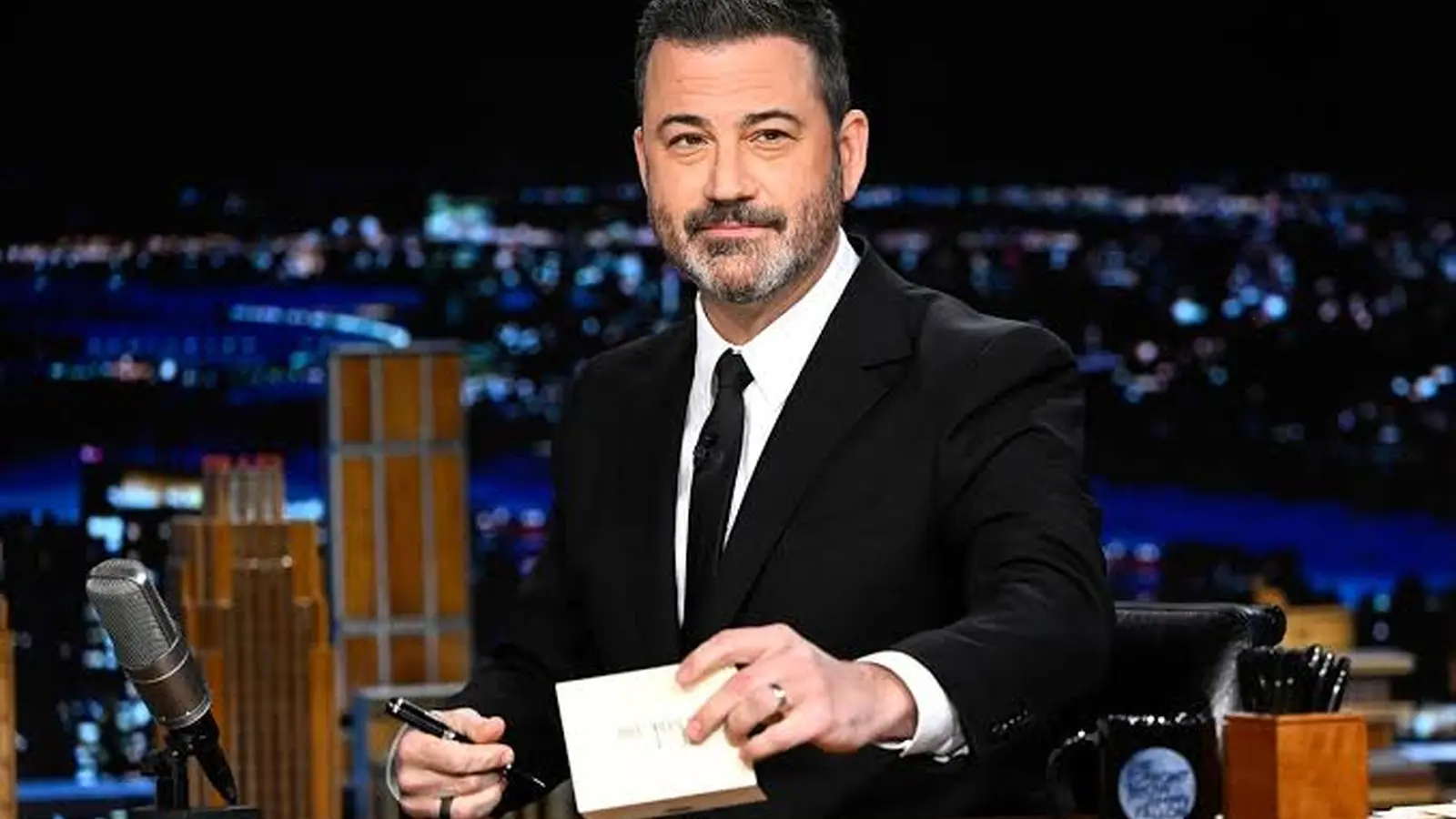5 Minutes
Jimmy Kimmel made an emotional, headline-grabbing return to late-night TV on Tuesday, addressing the six-day suspension that briefly took his show off the air. The opening blended the surreal and the intimate: news clips framing the moment as historic, a backstage cut to Kimmel and sidekick Guillermo Rodriguez costumed as a tiger and a banana, and then a deadpan quip — a reminder that even a fraught comeback is still television.
Kimmel used the monologue to thank an unusually broad coalition of defenders — from fellow comedians like Stephen Colbert, John Oliver and Conan O'Brien to conservative commentators who publicly defended his right to speak. He acknowledged that some of his supporters are figures he strongly disagrees with politically, and said he appreciated their willingness to push back against what he called an overreach by regulators and broadcasters.
At the heart of his return was a direct, visibly emotional address to the controversy sparked by his Sept. 15 monologue about the murder of conservative activist Charlie Kirk. Kimmel insisted it 'was never my intention to make light of the murder of a young man' and emphasized that he had posted an Instagram message expressing sympathy for Kirk's family the day of the killing. He also clarified that he did not mean to assign collective blame to any political group, calling the killer 'a deeply disturbed individual' and rejecting the idea that the act represented a wider movement.
Beyond apology and explanation, Kimmel pivoted to a broader argument about press freedoms and corporate pressure. He named FCC Chair Brendan Carr and recited the charted warning that some construed as a threat to broadcasters. Kimmel framed the chain reaction — a regulatory admonition, pledges from large affiliate owners Nexstar and Sinclair to preempt his program, and ABC's decision to suspend him — as a chilling moment for American late-night comedy.
He also took aim at former President Donald Trump, who had mocked him in the aftermath, and used the platform to praise Erika Kirk, Charlie Kirk's widow, for forgiving her husband's killer at a public memorial. The mixture of humor, anger and tears underscored the complicated role late-night hosts play today: part comedian, part civic commentator, and part lightning rod.

Industry reaction was swift and polarized. Protests popped up in New York and Los Angeles, and an ACLU-backed open letter signed by more than 400 entertainers protested Disney/ABC's suspension. Yet several major affiliates continued to preempt the Tuesday broadcast, underscoring how ownership structure and local station power can blunt a network decision. That reality is important for anyone tracking TV ratings, network strategy, or the evolving ecosystem of late-night programming.
Context and comparisons help put this episode in perspective. Late-night has a long history of controversy — from decades-old broadcast standards clashes to David Letterman's and Conan O'Brien's headline-making battles with networks. What feels different now is the speed and intensity of political amplification, and the leverage that corporate affiliates and regulatory threats can exert in real time. The Kimmel incident tracks alongside other modern flashpoints where social media and partisan outlets have magnified jokes into diplomatic crises.
Behind the scenes, writers and staff reacted privately and publicly. Louis Virtel, a writer on Kimmel's show, defended the intent of the original remarks on his podcast, saying that some wording was chosen to illustrate a point rather than to indict a broad group. Fans, meanwhile, flooded social feeds with clips and commentary — some praising Kimmel's return, others still critical of his phrasing and timing.
'Late-night hosts have always walked a tightrope between satire and sensitivity,' says Marcus Ellery, a cinema historian. 'Kimmel's episode is a reminder that comedy operates within cultural currents; sometimes a joke lands as critique, sometimes it lands as provocation — and the industry now faces higher stakes because of political polarization.'
For film and television enthusiasts, the story raises several takeaways: the creative freedom of late-night talk shows is not just about jokes and ratings, it is tied to how networks, affiliates, and regulators interpret public pressure; the incident will likely be cited in future debates about censorship and broadcast oversight; and it underscores the growing importance of rapid-response PR and community mobilization in defending creative shows.
Kimmel's return was both personal and political: a host apologizing for perceived insensitivity while also warning that corporate and governmental pressure on broadcasters threatens the very format that allows satire to flourish. Whether you view his comments as a misstep or a test of free speech safeguards, the episode has become another chapter in the ongoing story of how television, politics, and public opinion collide.
In the end, Kimmel asked viewers to remember not the kerfuffle but compassion — a note that, for many viewers of movies and TV who prize storytelling's human beat, may be the most important line of the night.
Source: variety


Leave a Comment